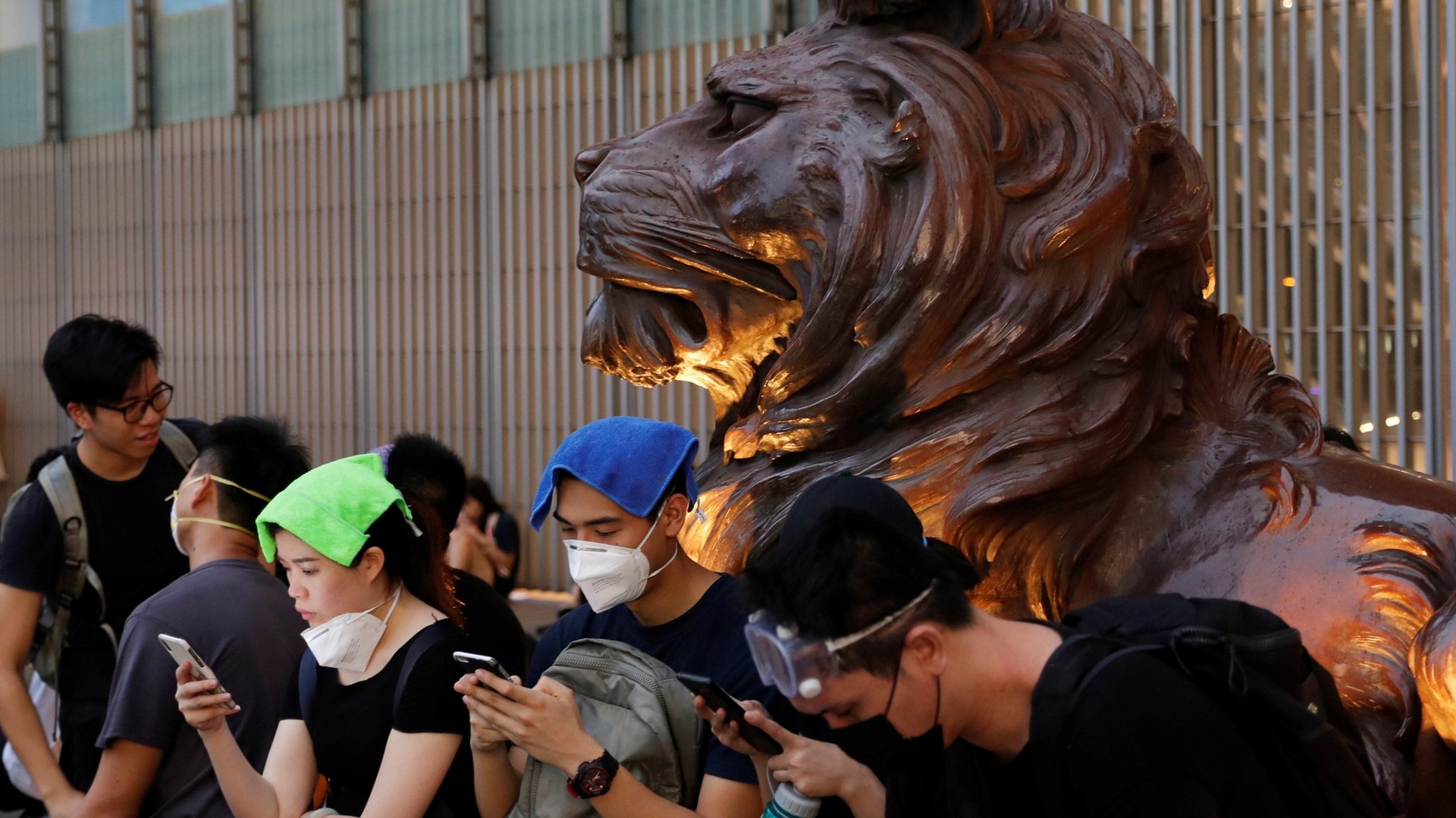Telegram faced cyberattacks from China during Hong Kong extradition protest
Telegram, the encrypted instant messaging tool, experienced a wave of powerful cyber attacks yesterday (June 12) that caused disruptions for users on the the same day that tens of thousands of young people took to the streets of Hong Kong to protest against a controversial extradition bill.


Telegram, the encrypted instant messaging tool, experienced a wave of powerful cyber attacks yesterday (June 12) that caused disruptions for users on the the same day that tens of thousands of young people took to the streets of Hong Kong to protest against a controversial extradition bill.
The demonstrators, some of whom ended up clashing with riot police who fired tear gas and rubber bullets at them, had in many cases used Telegram to organize and share information without being spied on. Telegram CEO Pavel Durov has since said the IP addresses behind the attack were coming mostly from China—and that this isn’t the first time “state actor-sized” attacks happened during protests in Hong Kong.
The attack yesterday was a distributed denial of service, or DDoS, a form of cyber attack that floods a targeted machine or server with so many requests the system gets overloaded and can’t fulfill some or all legitimate requests from actual users.
Some Twitter users had tweeted about the Telegram disruption, and wondered if there was a possible connection to the protests against a proposed law that would make it possible to extradite suspects to mainland China to face trial. On Tuesday (June 11), the city also saw Hong Kong police arrest the administrator of a Telegram group used to organize protests.
Telegram was founded in 2013 by two Russian brothers, Nikolai and Pavel Durov, and has often been used by activists and others seeking to avoid the monitoring of their communications.
In general, Hong Kongers are becoming ever more creative in deploying various digital tools to organize and protect their identities from the authorities, who have labeled the protests as a “riot,” which means people could face prosecutions and jail time in connection with yesterday’s action.
In addition to Telegram, protesters, many of them students, were using other encrypted messaging apps such as Signal and FireChat. All three tools were among the top three most downloaded apps in Hong Kong’s apple store on Wednesday.
Protesters also took other steps to anonymize their movements.